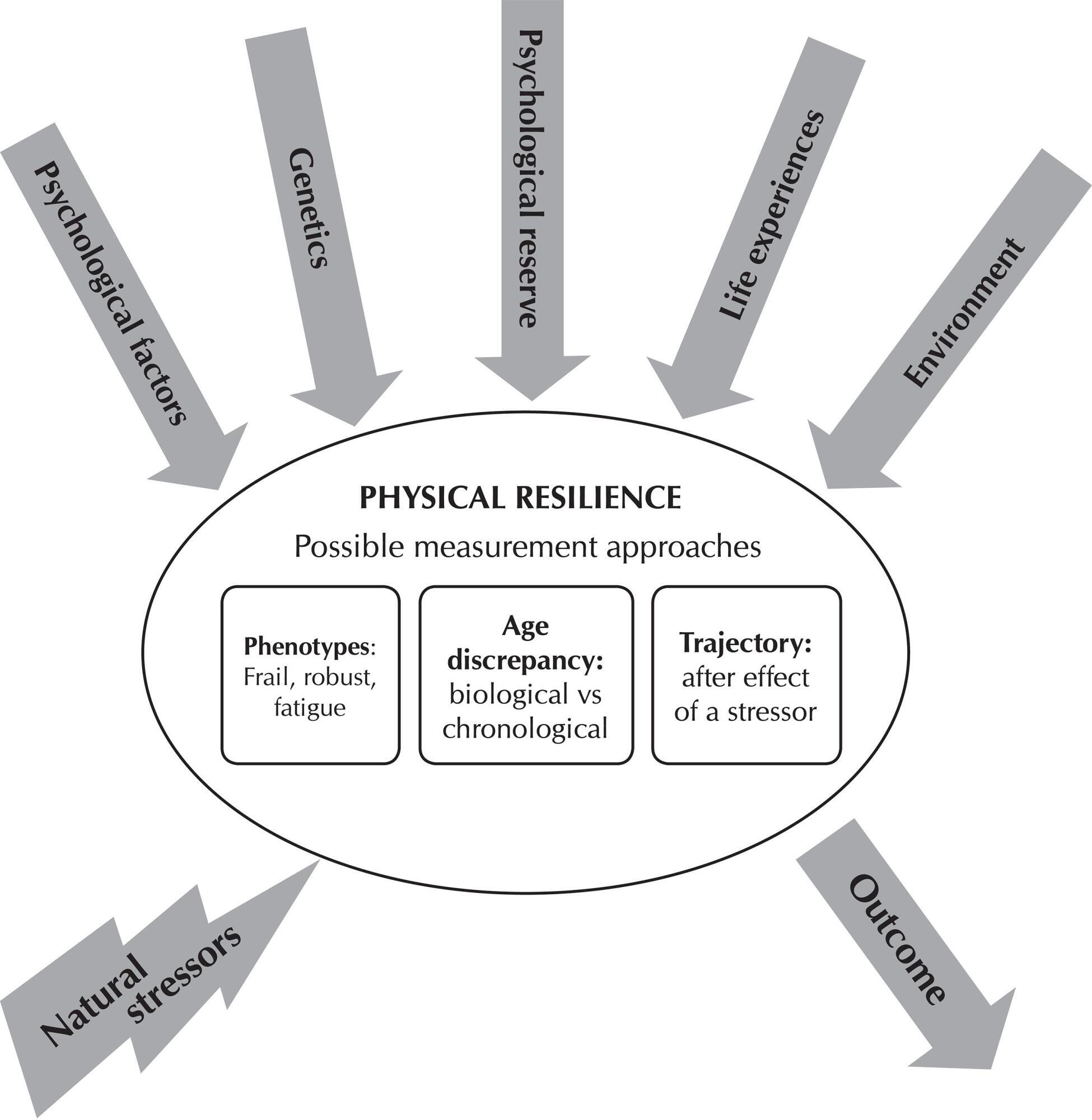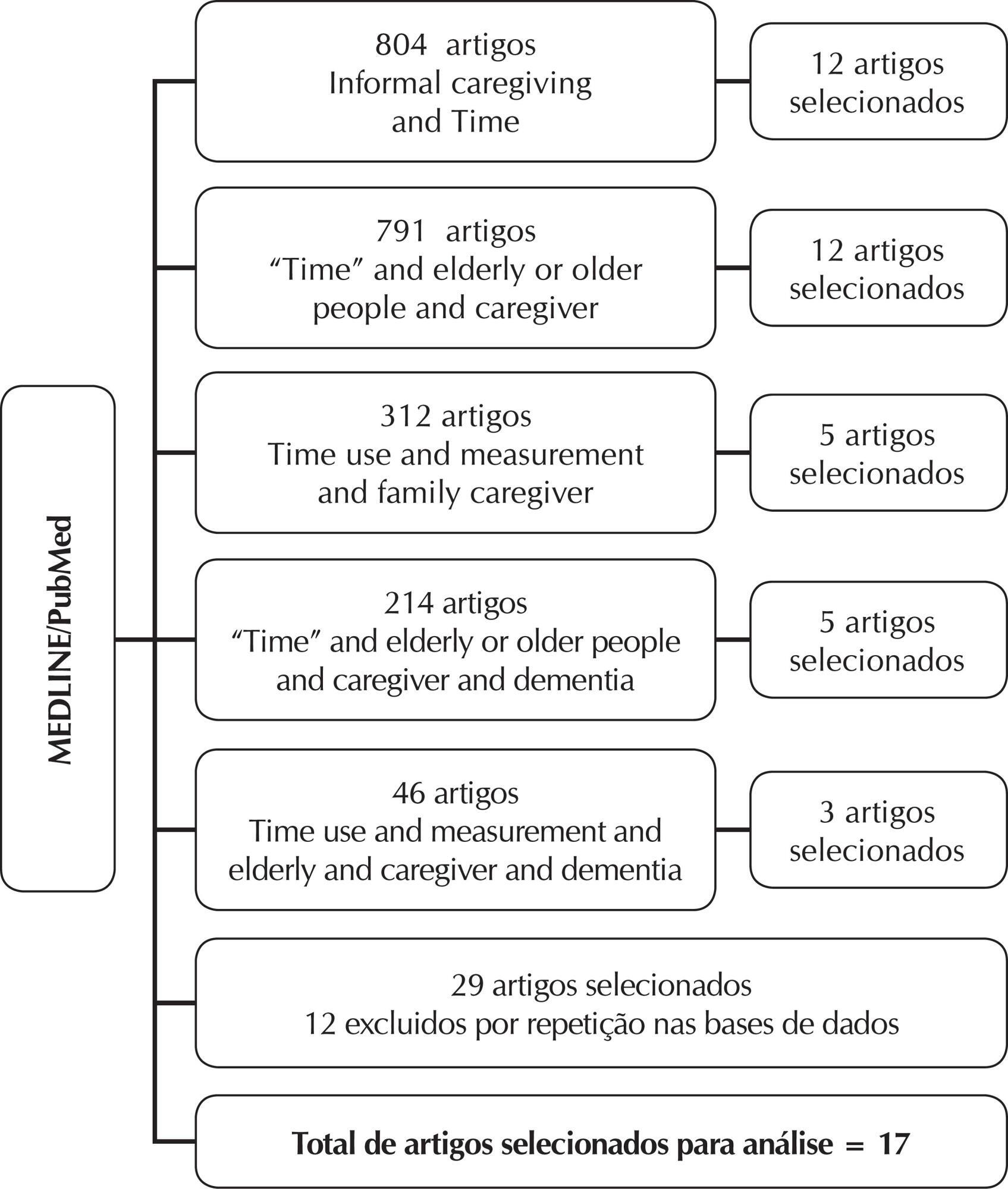-
REFLECTIVE
A physical resilience conceptual model – contributions to gerontological nursing
Revista Brasileira de Enfermagem. 2018;71(5):2589-2593
01-01-2018
Resumo
REFLECTIVEA physical resilience conceptual model – contributions to gerontological nursing
Revista Brasileira de Enfermagem. 2018;71(5):2589-2593
01-01-2018DOI 10.1590/0034-7167-2017-0111
Visualizações0Ver maisABSTRACT
Objectives:
To analyze and reflect on the potential applicability of the contribution of the physical resilience conceptual model of Whitson et al. in the care for older adults.
Method:
The present article of reflection was structured based on the consultation of articles and definition of inherent concepts, with analysis and reason of the potentialities of its application in geriatric nursing care.
Results:
Physical resilience is influenced by diverse stimuli. The identification of stressors and early intervention enable the delay of the functional capacity decline. In practice, the planning of interventions that depend on the innate capacity of older adults is of utmost importance.
Conclusion:
The trajectory outlined over a debilitating event is relevant to understand the factors that contribute to the development of frailty or pre-frailty conditions. This knowledge allows nurses to adjust their practice and contribute to the effectiveness of interventions and a better prevention of the frailty syndrome.

-
REVISÃO
Time use by family caregivers of elderly with dementia: an integrative review
Revista Brasileira de Enfermagem. 2018;71(suppl 2):893-904
01-01-2018
Resumo
REVISÃOTime use by family caregivers of elderly with dementia: an integrative review
Revista Brasileira de Enfermagem. 2018;71(suppl 2):893-904
01-01-2018DOI 10.1590/0034-7167-2017-0268
Visualizações0Ver maisABSTRACT
Objective:
To describe the development of measures used between 1993 and 2016 to evaluate time use by family caregivers of elderly with dementia and to find out the patterns of time use identified in the literature.
Method:
An integrative review of articles was performed, indexed by the following terms: time use management, family caregiver and elderly.
Results:
A total of 17 articles were found, of which seven were methodological. Among these seven articles, five were psychometric. The most frequently used measures were self-reporting (matrices, questionnaires and inventories), validated through objective measures of occurrence and duration. Longitudinal, prospective, clinical and correlational studies showed that care time covaries with the receptors’ dependence and that the caregivers’ subjective well-being is more affected by the time restriction to free choice activities than the burden resulting from obligatory activities.
Final considerations:
Valid self-reporting measures are widely used nowadays and they are considered to be effective to assess the objective and subjective costs of health care for dementia.




